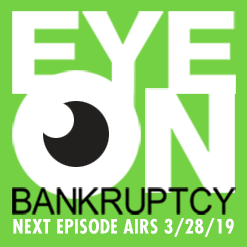| |
| |
| vol 16, num 1 | March, 2019 |
| |
|
|
| |
|
|
|
|
|
| |
| Investing in Distressed Real Estate |
| Investing in distressed real estate is often characterized by the high returns it can offer on invested capital, as well as by the many ways an investor can lose his invested capital. When investing in distressed real estate, either via equity or debt, it is inevitable that investors will come across “hair” that would normally deter more institutional investors. This “hair” may appear in the form of a property in desperate need of repairs, one that has significant environmental damage, or a property that does not have clean and marketable title. Investors must be able to accurately assess the risks associated with the project before
they make nonrefundable deposits. After assessing the risks, the ability to adequately gauge the costs of mitigation is the key to a successful investment. |
| |
|
|
|
|
| |
|
| |
| Third Circuit Addresses Tenant’s Rights When Bankrupt Landlord Rejects Lease |
| Bankruptcy cases in which a commercial tenant decides to reject its lease are commonplace. Less common are situations in which it is the landlord who files bankruptcy and seeks to reject the lease. The Third Circuit Court of Appeals addressed this very situation in its Nov. 30, 2018, opinion issued in the case of In re Revel AC Inc.
Before discussing the specific issue addressed in Revel, a short refresher on the rights of the relevant parties to a lease in bankruptcy is in order. When it is the tenant that files bankruptcy, the tenant has the right to either assume the lease (in which case both the tenant and the landlord remain obligated for continued performance under the lease) or reject the lease (in which case the parties — with certain exceptions — are relieved of their obligation for future performance under the lease). Section 365(h) of the Bankruptcy Code addresses the scenario of when the landlord files bankruptcy and wishes to reject the lease.
|
| |
|
|
|
|
| |
|
| |
| Confirmation Order Insufficient to Prevent Lawsuit over Contaminated Real Estate |
| Releases in conformation orders do not always protect against subsequent litigation or liability. DVL Inc. and DVL Kearney Holdings LLC (collectively, “DVL”) filed a lawsuit in the U.S. District Court for the District of New Jersey against Congoleum Corp., which in turn sued Bath Iron Works Corp. (BIW) as a third-party defendant concerning a contaminated piece of land. Previously, Congoleum had gone through a bankruptcy where it settled asbestos-related personal-injury claims and the confirmation order contained certain releases of liability.
The specific issue of releases in the confirmation order came before the district court in BIW’s motion to dismiss the complaint. The U.S. District Court for the District of New Jersey held that while generally confirmation orders have a res judicata effect, the debtors’ confirmation order was insufficient to also release environmental claims at the motion-to-dismiss stage.
|
| |
|
|
|
|
| |
|
| |
| Annual Spring Meeting Registration Open Now! |
| Join the Real Estate Committee at ABI's Annual Spring Meeting , one of the biggest insolvency events of the year! Mix professional development and networking at a variety of timely educational sessions, networking events, and optional programs — all in the heart of Washington, D.C.
This year, the Committee will be pairing with the Secured Credit Committee to host a session titled, Opinion Letters for Bankruptcy Lawyers: What You Need to Know Before Issuing a Third-Party Opinion Letter. Speakers for this session include:
- Eric F. Johnson (Moderator) - Spencer Fane LLP; Kansas City, MO
- Sherry Dreisewerd - Spencer Fane LLP; St. Louis
- Richard Kruger - Jaffe Raitt Heuer & Weiss; Southfield, MI
- Megan W. Murray - Buchanan Ingersoll & Rooney PC; Tampa, FL

|
|
|
| |
|
|
|
|
|
|
|
|
|
| |







